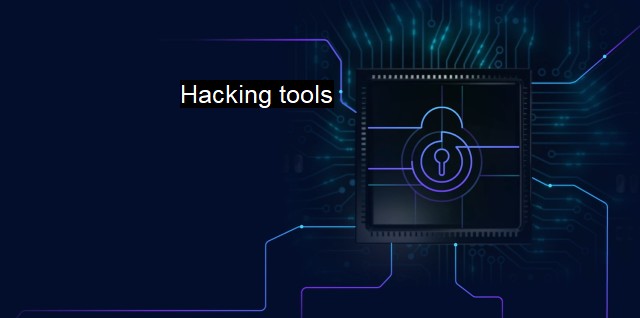What are Hacking tools?
Risks and Rewards: A Closer Look into Hacking Tools and Their Impact on Cybersecurity
The realm of cybersecurity is vast and dynamic that evolves with technology. Among its assorted facets, hacking tools form a central part, providing a significant contribution towards understanding the concept of cybersecurity and antivirus. Hacking tools are essentially software utilities that leverage vulnerabilities in a system or application to exploit it for various potential purposes, such as stealing or manipulating information or shutting down networks.The understanding of hacking tools is essentially two-fold. On one hand, they are used maliciously by cybercriminals or hackers to break into computer systems illegally. On the other hand, they contribute significantly to cybersecurity as ethical hacking tools, applied by security experts or white-hat hackers, to identify and fix vulnerabilities, thereby strengthening systems against malicious threats.
In the malicious context, hacking tools could cause severe damages. They may foster unauthorized access, data theft, software manipulation, or sabotage, typically driven by motives such as financial gains or political activism. Viruses, worms, Trojans, botnets, and ransomware are some types of tools that cybercriminals deploy frequently. For instance, an email containing a virus may compromise a user's personal or valuable information when clicked; a ransomware attack, on the other hand, could encrypt an organization's critical data, asking for ransom in return for decrypting it.
From the perspective of white-hat hackers or security experts, hacking tools serve a constructive purpose, contributing greatly to the cybersecurity infrastructure. These professionals use a variety of hacking tools, including network scanners, vulnerability scanners, wireless hacking tools, and password crackers, in comprehensive penetration testing processes that entail scanning, testing, and securing systems against potential threats.
Considering such tools' power contractiveively and destructively, antivirus software becomes all the more essential. an antivirus program is a hacking tool's defense mechanism programmed to detect, block, and remove viruses and other types of malicious software threats designed to harm a system or network. Having a comprehensive, reliable, up-to-date antivirus solution is crucial to safeguard against evolving cyber threats, mitigating the severity of an attack, and preventing data breaches.
Notably, antivirus programs are not without their challenges. For instance, while they can contend effectively against known threats, zero-day exploits—viruses or other malicious programs that capitalize on unknown vulnerabilities—pose a significant challenge, often eluding detection despite sophisticated antivirus tools. continuous research and development are aiding antivirus designers in evolving and enhancing their solutions, moving from signature-based detection to more advanced heuristics and machine learning-based detection systems.
Hacking tools play a crucial role in cybersecurity measures, providing a dual context of their utility and threat. For cybercriminals, these tools aid in illegal penetrations to exploit vulnerabilities, underscoring the significance of robust, well-maintained antivirus systems to neutralize such threats. Simultaneously, for cybersecurity personnel or white-hat hackers, carefully deployed hacking tools help expose system or application vulnerabilities, fostering the steady fortification of defenses against malicious hackers.
Thus, understanding hacking tools is indispensable to comprehending cybersecurity principles and their collaborative intersection with antivirus software. They symbolize the eternal conflict between illegal, malicious breaches and the continuous endeavor to combat those breaches and make cyberspace a safe sphere for all its users. comprehension and prudent usage of hacking tools form an integral part of the wider quest to maintain the security, stability, and reliability of our digital world.

Hacking tools FAQs
What are hacking tools?
Hacking tools refer to software or programs used by cybercriminals to exploit vulnerabilities in computer systems and networks. These tools can be used to gain unauthorized access to sensitive information, steal data, or cause harm to computer systems.Are all hacking tools illegal?
Not all hacking tools are illegal. Some hacking tools are designed for testing the security of computer networks and systems to identify vulnerabilities and fix them before cybercriminals can exploit them. However, the use of hacking tools for malicious purposes is illegal and can result in severe consequences under the law.Can antivirus detect all hacking tools?
Antivirus software can detect most common hacking tools and malware. However, cybercriminals are constantly developing new tools and techniques to bypass antivirus software. Therefore, it is essential to keep antivirus software up to date and use a variety of cybersecurity measures to protect your computer systems and networks.Is it possible to prevent all hacking attacks using tools?
It is impossible to prevent all hacking attacks using tools alone. While cybersecurity tools and software can help block or detect potential threats, they are only one part of a comprehensive cybersecurity strategy. To prevent hacking attacks effectively, it is essential to educate employees on cybersecurity best practices, use strong passwords, regularly patch and update software, and have a comprehensive incident response plan in place.| | A | | | B | | | C | | | D | | | E | | | F | | | G | | | H | | | I | | | J | | | K | | | L | | | M | |
| | N | | | O | | | P | | | Q | | | R | | | S | | | T | | | U | | | V | | | W | | | X | | | Y | | | Z | |
| | 1 | | | 2 | | | 3 | | | 4 | | | 7 | | | 8 | | |||||||